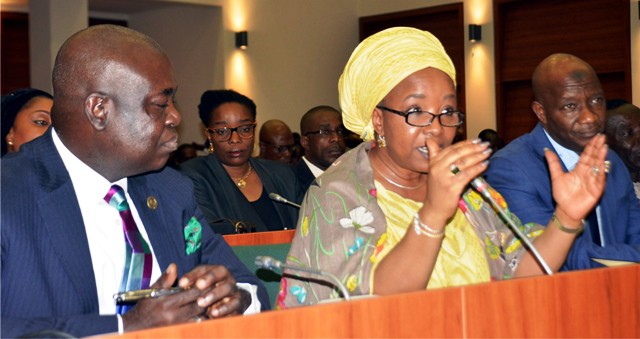Business
PenCom Approves Use Of Pensions For Mortgage

National Pension Commission (PenCom), has commenced approval for workers to use 25 per cent of their Retirement Savings Accounts for mortgage.
PenCom in a press statement released on Friday, titled ‘PenCom approves guidelines on accessing Retirement Savings Account balance for payment of equity contribution for residential mortgage by RSA holders’, noted that the approval was in line with the Pension Reform Act of 2014.
It stated in part, “PenCom is pleased to inform all stakeholders and the general public, particularly RSA holders, that the commission has approved the issuance and immediate implementation of the guidelines on accessing RSA balance towards payment of equity contribution for residential mortgage by RSA holders.
“The approval is in line with Section 89 (2) of the Pension Reform Act 2014, which allows RSA holders to use a portion of their RSA balance towards payment of equity for residential mortgage”.
According to the PenCom, the guidelines cover pension contributors in active employment, either as a salaried employee or as a self-employed person.
It added that the maximum amount to be withdrawn is 25 per cent of the total mandatory RSA balance as of the date of application, irrespective of the value of equity contribution required by the mortgage lender.
It further stated that where 25 per cent of a contributor’s RSA balance is not sufficient for payment as equity contribution, that RSA holders may utilize the contingency portion of their voluntary contributions (if any).
To qualify as a mortgage lender for the purpose, it stated, the company must be licensed by the Central Bank of Nigeria, comply with the Contributory Pension Scheme and have valid Pension Clearance Certificate.
“The RSA of the applicant shall have both employer and employee’s mandatory contributions for a cumulative minimum period of 60 months (five years).
“A contributor under the Micro Pension Plan is also eligible, provided he/she has made contributions for at least 60 months (five years) prior to the date of his/her application, and the RSA Holders that have less than three years to retirement are not eligible.
“Married couples, who are RSA holders, are eligible to make a joint application, subject to individually satisfying the eligibility requirements.
“RSA holders, if registered before 1 July 2019, must have their records updated through the RSA data recapture exercise.
“Application for equity contribution for residential mortgage shall be in person and not by proxy.” it stated.
By: Corlins Walter
Transport
Automated Points Concession : FAAN Workers Gave 72hrs To Revise Decisions In PH

Transport
FAAN Announces Pick-Up Points for Go-Cashless Cards

Business
Fidelity Bank To Empower Women With Sustainable Entrepreneurship Skills, HAP2.0
-
Politics4 days ago
2027: NIGERIANS FAULT INEC ON DIGITAL MEMBERSHIP REGISTER DIRECTIVE
-

 Environment4 days ago
Environment4 days agoLAWMA Director Says Sweeping Reforms Have Improved Waste Collection
-
Politics4 days ago
LP Crisis: Ex-NWC Member Dumps Dumps Abure Faction
-

 Politics4 days ago
Politics4 days agoUmahi Dismisses Allegations On Social Media, Insists On Projects Delivery
-

 Sports4 days ago
Sports4 days agoAbia Not Sure To Secure continental Ticket
-
Politics4 days ago
NATASHA ELECTRIC VEHICLES INITIATIVE IN KOGI CENTRAL
-
Sports4 days ago
La Liga: Yamal Records First Career Hat-trick
-

 Sports4 days ago
Sports4 days agoPSG Extend Lead In Ligue 1

